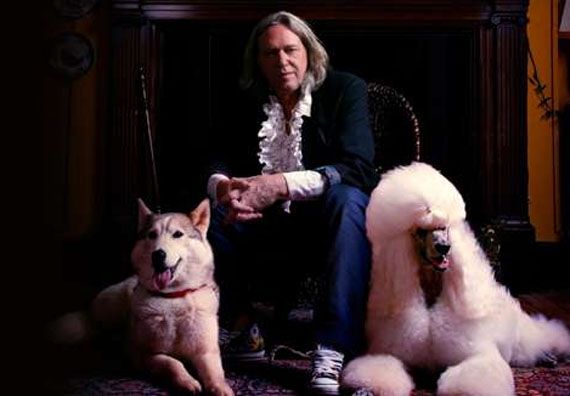
Photo Courtesy of Martin Miller's Gin
I sat down with Martin Miller to chat about his namesake gin and how it came about. What I got from the charismatic Brit? Check it out.
You are a man of the world and a jack of all trades, and have been involved in a number of different projects over the years. How has that influenced you and the outcome of Martin Miller's Gin?
Martin Miller: Not so sure about the 'jack of all trades' usually implies and 'master of none!' but it's true I have had many moments on my road to Damascus, and yes it has taught me a lot and influenced me in my approach. In the case of Martin Millers Gin it taught me to be a true 'amateur' in original sense of the word, that of a lover, or I guess we'd now say a fan of gin. For this reason my gin was never a professional venture for me so I was able to put as much into it as I wanted without a ny thought of commercial consideration. A true labor of love!
 Your Slogan is "Born of Love, Obsession and some degree of Madness." Can you elaborate on this?
Your Slogan is "Born of Love, Obsession and some degree of Madness." Can you elaborate on this?
MM: Well, I guess I have already touched on my love affair with gin, and it's true to say that we spent nearly eighteen months obsessively refining the recipe and the complex twin distillation system we use to create Martin Miller's. The madness? That was the reaction I got from my partners when I first suggested sending the distilled spirit to Iceland for blending. 'You're mad' they said, 'think of the cost!' And they meant it. But then again all bottled spirits are generally between fifty and sixty percent water, so my point was, 'well then, if that's the case it had better be the best water on earth.'
On a normal night, what is your drink of choice?
MM: In England or Spain its a gin and tonic. When in the U.S. it's a wettish martini. Sort of what the bartenders think of a Jerry Thomas style.
What event sparked the interest in developing your own gin?
MM: Back in the mid nineties it was hard to find decent gin. The category had been left to old ladies. Vodka was the thing. Now, if it was hard to decent gin, then in London a decent G&T was nigh impossible to find. After one such experience with a disgusting pub G&T I vowed to my friends, now my partners in the venture, that if I couldn't get a decent G&T then I'd darn well make my own.
 What influences you?
What influences you?
MM: The world. It's true. Every day and in the strangest places, one finds inspiration and new ideas. Who would of thought a bad gin and tonic would lead to twelve years hard work and a brand that now sells close to a 100,000 cases all around the world?
In your opinion, what is the difference between a good gin and an excellent gin?
MM: Not stupid secret ingredients. Today it seems anything can go into gin so long as its labelled gin on the bottle. Its just marketing on the cheap. It was the same with vodka before. To me gin should taste like gin. The difference between a good gin and a bad one? You taste it in the craft and love that has gone into its distillation. Less is more.
Someone that develops their own beverage must have a very refined palate. What are some of your favorite taste and texture combinations?
MM: I'm no master of wine, but with my gin I knew what I liked and what I wanted to achieve. Then it was a case of working with the best and learning from them. I'm afraid to say when it comes to my own favorites I am a bit of a 'pleb.' Simple English dishes like shepherd's pie are my favorite, along with the truly traditional and now very English curry. Strong simple flavors. Same with wines, solid oak aged Riojas are my choice, the old style Riojas that is. I love Spanish wines, I feel they are very underrated.
For more info, visit MartinMillersGin.com.
See our picks for Best Fine Spirits









